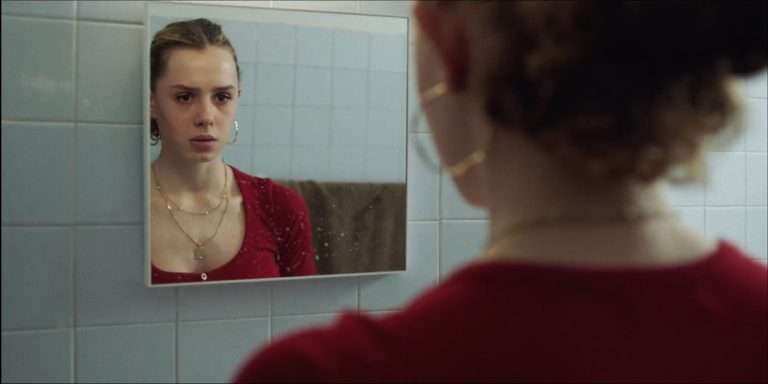In the chilling opening moments of Bruno Ankovic’s “Celebration” (Proslava), Mijo (Bernard Tomić) is hiding away from the authorities. They are out for his blood amid the biting cold in the Autumn of 1945. Since this is the opening act, we are unaware of who Mijo is, where he comes from, and why the authorities are hunting him like rag dogs. The director’s intentions are pretty clear. He wants us to feel empathic towards Mijo before he slowly starts stripping away the said empathy for a more piercing look at what makes things lead to right-wing extremism.
Based on the novel “Celebration” by Damir Karakaš, the film is set in the Independent State of Croatia, a puppet state formed by Nazi Germany in 1941. However, the non-linear narrative moves through four timelines – the autumn of 1945, the summer of 1933, the winter of 1926, and the spring of 1941. Mijo is the central character in all timelines; through him, we see the conditions in which he was brought up. Shot mostly in natural lights, where the days feel like they are baked in the sun that can pierce your skin, and nights feel as bleak as the darkest pit in thunderstorms; “Celebration” is a film steeped in poverty and insufficiency.
Mijo and his family – the timelines allow us to see his grandfather, father, mother, and baby sister – living in stark conditions. There is a constant sense of scarcity. In one of the timelines, his father decides to take his grandfather up on the mountain so that there is one less mouth to feed. In another, a young Mijo is forced to take his dog away from his home because the regime does not allow normal people to have them. Consequently, and with time, you pity Mijo’s state and his overall being. The innocence in him is lost along the line because all he and his family do in the harshness of nature is essentially survive.
What it doesn’t tell us and warn us about is how Mijo eventually leads to a path of being a part of the fascist regime that governed the lands. Much like movies such as “The Childhood of a Leader” and “The Zone of Interest,” the film just makes us witness the progression of his life, and his struggles, while everything else happens in the background. Basically, we become witnesses of a life that is essentially about being on the sideline as far as a political stand is concerned until a repressed, controlling power takes over and completely snatches you with its blinding lights of a future that will be better.
Now, the only thing that Bruno Ankovic’s film lacks is its ability to confront the viewer with its ideologies without losing something in translation. A casual viewer might just see this as a recollection of a life that is full of painful moments. The subtlety with which the filmmaker deals with the eventual fall from grace is handled with an opaque lens. It’s hard to see the pivot in his story’s arc up until the final credits roll. So, in a way, the reversing of the non-linear narrative doesn’t really help create a lasting impact on us. That said, as a directorial debut, there is some powerful imagery that Bruno Ankovic is able to conjure up. Dragging us into the root of what leads to right-wing extremism is a reason alone for “Celebration” (Proslava) to be seen.



![Aga’s House [2019]: ‘KVIFF’ Review – An Empathetic coming-of-age Drama Set in the Land Of Women](https://79468c92.delivery.rocketcdn.me/wp-content/uploads/2019/06/Agas-House-highonfilms1-768x322.jpg)
![Sui Dhaaga [2018] Review: Skillfully Woven](https://79468c92.delivery.rocketcdn.me/wp-content/uploads/2018/09/Image-3-768x432.jpg)
![Kappela [2020] Netflix Review: A Game of Perception](https://79468c92.delivery.rocketcdn.me/wp-content/uploads/2020/06/Kappela-Netflix-Review-768x479.jpg)

![Errementari [2017] Netflix Review – A Simplistic yet Wildly Entertaining Folk Horror](https://79468c92.delivery.rocketcdn.me/wp-content/uploads/2021/03/Errementari-2017-768x432.jpg)
![The Middle Man [2021]: ‘TIFF’ Review – Coen-esque black comedy falls short of its potential](https://79468c92.delivery.rocketcdn.me/wp-content/uploads/2021/09/The-Middle-Man-1-highonfilms-768x322.jpg)